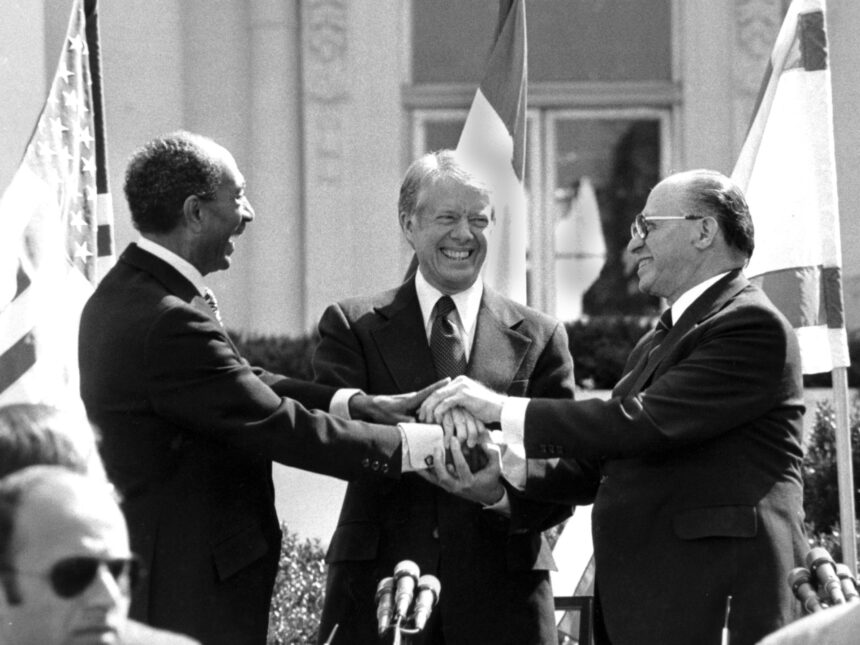On December 29, the world lost a great advocate for peace and humanitarian causes with the passing of former President Jimmy Carter at the age of 100. Carter, known for his efforts in promoting peace between nations and environmental sustainability, will be remembered in the Middle East as the architect of Arab-Israeli normalization.
During his presidency, Carter played a key role in brokering the Camp David Accords in 1978, which led to the peace treaty between Egypt and Israel in 1979. While this agreement was a significant step towards peace in the region, it did not bring about the desired outcomes for the Palestinians. The Arab-Israeli conflict continues, with ongoing occupation and violence in the West Bank and Gaza.
The legacy of the Camp David Accords highlighted the shift in Arab officialdom’s approach towards the Palestinian cause, ultimately sidelining their national aspirations. The agreements failed to address the fundamental rights of the Palestinian people and instead focused on maintaining stability in the region.
Subsequent peace efforts, such as the Oslo Accords and the Abraham Accords, further marginalized the Palestinians and prioritized the interests of other Arab states. The normalization of relations between Israel and various Arab nations did little to address the root issues of the conflict and only served to strengthen Israel’s position in the region.
In his later years, Carter spoke out against Israeli policies in the occupied territories, labeling them as apartheid. His stance on the Israeli-Palestinian conflict represented a shift in American political discourse and called for a reevaluation of US support for Israel.
As we reflect on Carter’s legacy, it is essential to reconsider US policies towards Israel and Palestine. A more balanced approach that recognizes Palestinian rights and holds Israel accountable for its actions is necessary for progress towards a lasting peace in the region. Jimmy Carter’s advocacy for justice and peace serves as a reminder of the importance of standing up for the oppressed and working towards a more equitable world.










